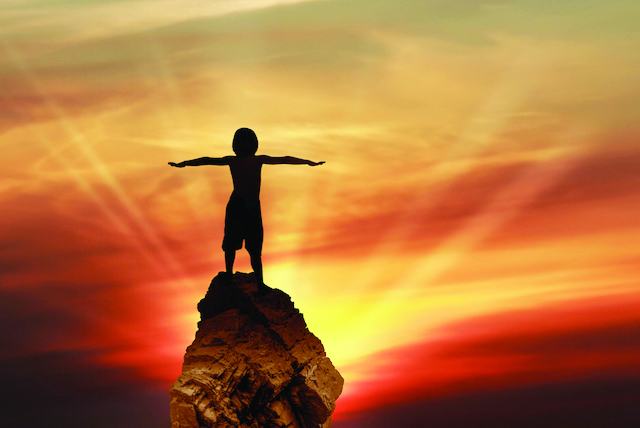by the El Reportero staff
With reports by LifeSiteNews
Imagine a world where Earth Day is widely observed but Life Day doesn’t exist. We take time to reflect on environmental well-being, but not on the intrinsic value of human life. We organize summits to reduce carbon footprints, but not to reduce suicide or promote hope. As noble as it is to care for our planet, what does it say about us that we fail to pause, even one day a year, to honor and protect the miracle of human life?
Canada, once hailed as a beacon of civil rights and progressive values, is now spiraling into a moral abyss where death is not only accepted—it’s promoted, subsidized, and normalized under the banner of “compassion.” What began in 2016 as the legalization of euthanasia for terminally ill patients has morphed into something chilling: a rapidly expanding medical killing regime that offers death not just as a choice, but increasingly as a solution.
This isn’t alarmism. This is reality. In 2022 alone, Canada’s Medical Assistance in Dying (MAiD) program was responsible for 13,241 deaths—making euthanasia the sixth-leading cause of death in the country. That’s 4.1 percent of all deaths nationwide, and the number keeps rising. What’s more disturbing? A 31.2 percent increase from just the year before, fueled largely by 2021’s Bill C-7, which broadened eligibility to include people who were not terminally ill.
It gets worse. In 2027, the expansion of MAiD is set to include those suffering solely from mental illness. We live in a time when mental health campaigns flood our screens with the message that “you’re not alone,” and that “help is available.” But in Canada, help will soon include a government-assisted death.
Where is the outrage? Where are the candlelight vigils for these souls lost not to disease, but to despair sanctioned by law? Instead of investing in mental health services, addiction treatment, or support for people with disabilities, Canada is preparing to make euthanasia available to “mature minors” and possibly even children with severe autism, according to internal government research.
Yes, you read that right. As reported by LifeSiteNews, government-funded studies are exploring youth perspectives on euthanasia and considering whether children with autism should be eligible for state-assisted death. How is this not a dystopian nightmare? In what rational world does the government even entertain the thought of offering lethal injections to vulnerable children?
Meanwhile, courts are grappling with questions of conscience and religious freedom. A recent ruling determined that Quebec’s so-called “Loi sur la Laïcité de l’État”—which bans public servants from wearing religious symbols—does not grant unlimited authority to restrict activities like those of Le Groupe Jaspe, a pro-life organization offering outreach and suicide prevention services.
Think about the irony here: the state imposes strict secularist rules to prevent faith-based groups from promoting hope and life, all while expanding laws that facilitate death. The court’s limited recognition of the rights of groups like Le Groupe Jaspe is a rare win, but in a broader landscape, these voices are under siege.
Instead of championing a culture of life, modern Canada has become a nation of sterile “choice” —a buzzword that loses its meaning when the only options offered are despair and death. It’s as if the value of a life is now measured solely by productivity, independence, or a government-sanctioned sense of “quality.” If you’re old, sick, disabled, or mentally ill, the message is clear: your death is more convenient than your care.
Where is our Life Day?
We should be gathering in parks and public squares to celebrate every heartbeat, every struggle overcome, every life saved from the brink. We should honor not just newborns but the elderly, not just the healthy but the vulnerable. If we have Earth Day, why not Life Day? A time to recommit to protecting the most sacred and irreplaceable resource we have: human beings.
Canada’s descent into this euthanasia abyss is not just a Canadian problem. It’s a cautionary tale for the world. When a society loses its moral compass, when expediency and ideology replace empathy and ethics, it opens the door to dehumanization at a bureaucratic level. What starts as a “right to die” soon becomes a pressure to die, particularly for the weak, the poor, or those with no advocates.
We cannot let this trend spread unchecked. It’s time for a global awakening—a cultural, spiritual, and moral revival that affirms life at every stage. Religious communities, healthcare professionals, civil rights activists, and ordinary citizens must come together not just to oppose euthanasia, but to reclaim the narrative around suffering and support.
Suffering is part of the human experience, but it does not strip a person of their dignity. In fact, it can bring out profound compassion, resilience, and connection. Instead of medicalizing despair, let us humanize care. Instead of legalizing the end, let us invest in new beginnings.
To do nothing is to concede. It is to let our culture slip further into the abyss where a child might one day be offered a needle instead of a hug, a grave instead of guidance.
It’s not too late.
Start by asking your lawmakers why there isn’t a Life Day. Start by demanding more mental health services, more hospice support, more disability resources—not more ways to die. Start by reminding your communities, your churches, your schools, and your governments that life is not a burden. It’s a gift.
The Earth can’t flourish if its people don’t. Let’s not wait until it’s too late to realize how insane it has become to promote death as progress.
Let us dare to be sane. Let us dare to live.



